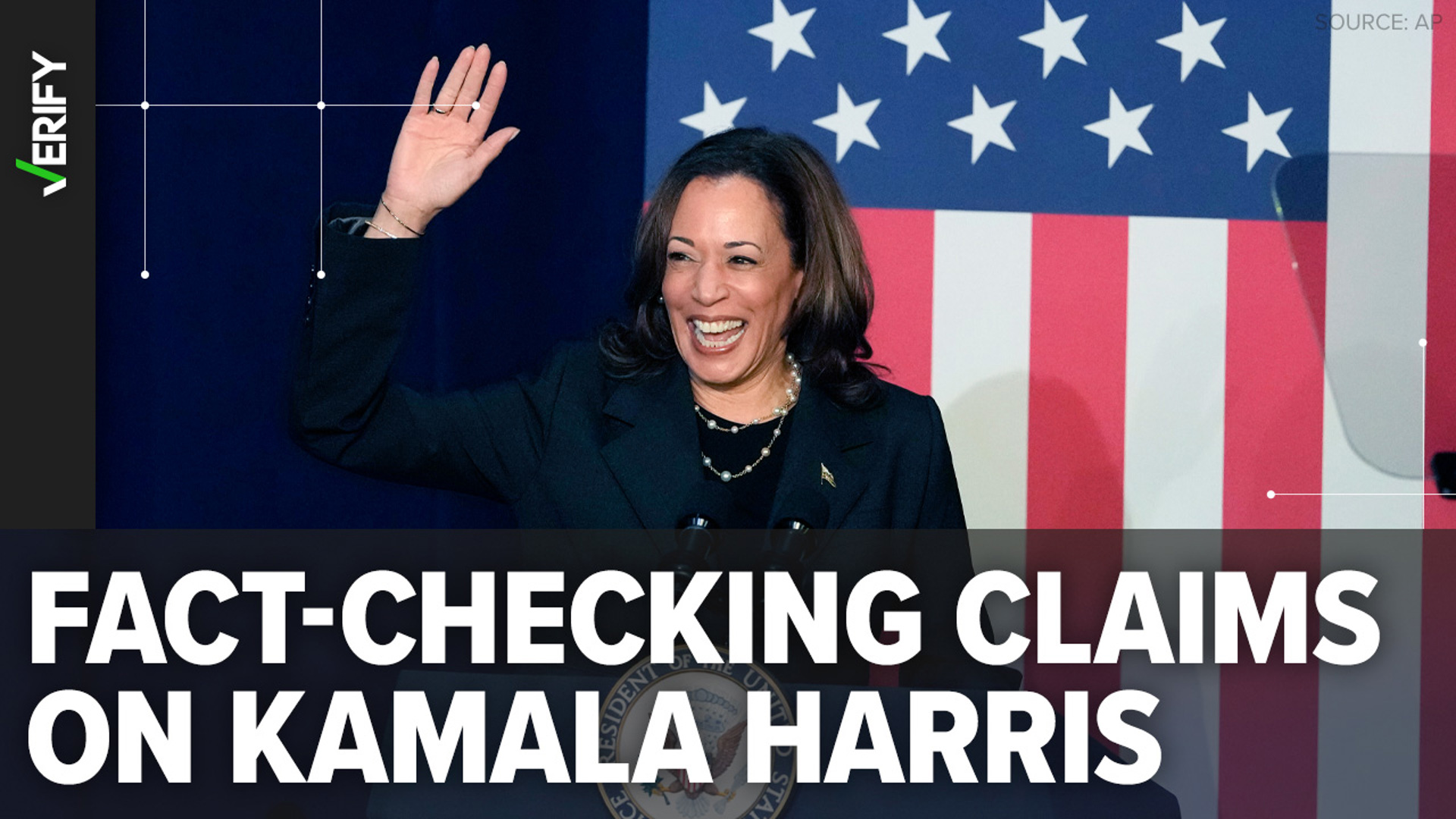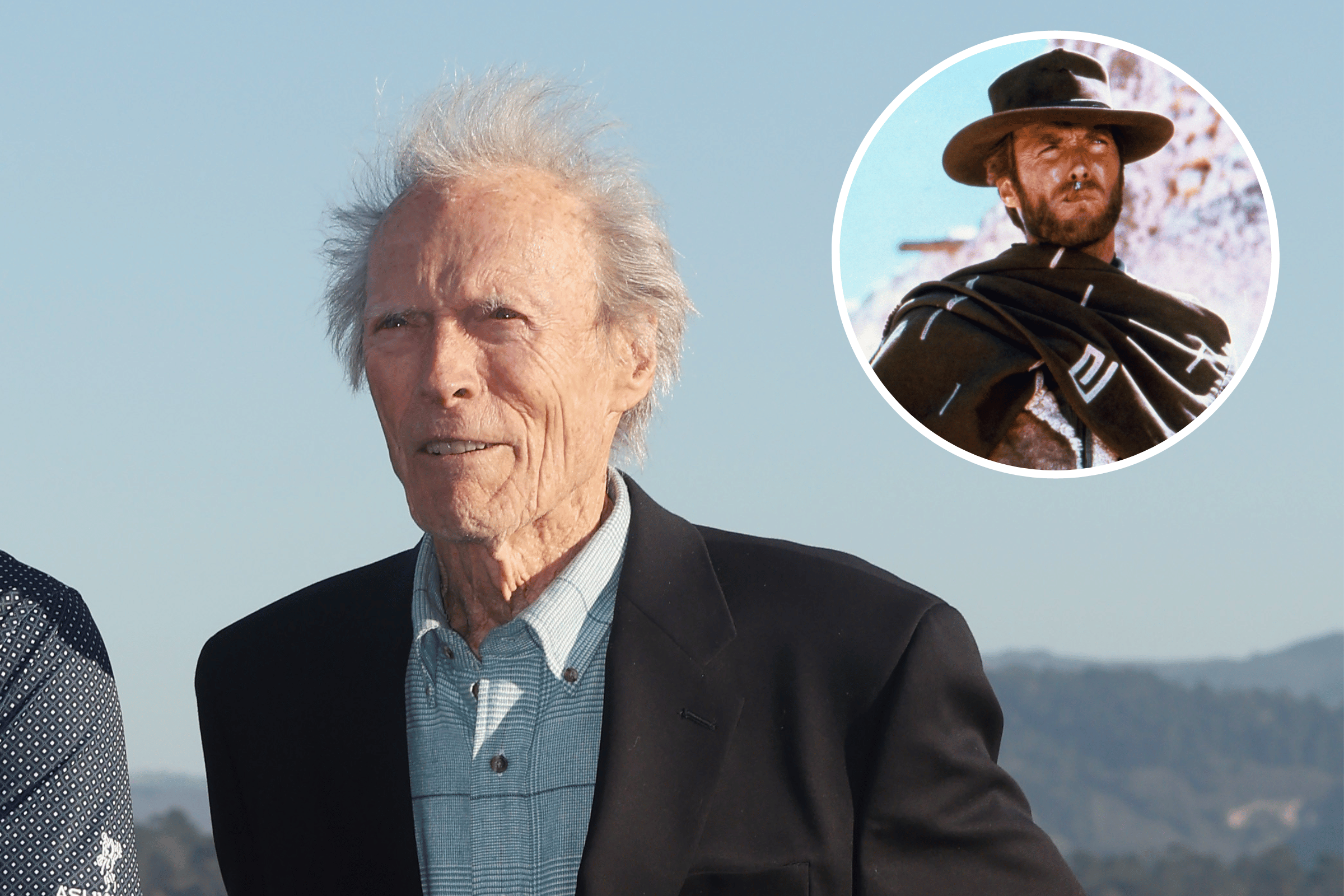Does the steely gaze of Hollywood's iconic gunslinger, Clint Eastwood, fall upon the political stage in support of Vice President Kamala Harris? The answer, shrouded in a mist of speculation and fueled by the polarized currents of American politics, remains elusive, yet the very query ignites a firestorm of debate.
The intersection of celebrity and politics, a well-trodden path in the American landscape, makes this a particularly compelling question. Eastwood, a titan of cinema, a director of profound influence, and a man unafraid to voice his political opinions, has long held a prominent position in the public eye. His endorsements, his political leanings, and his overall worldview are subjects of intense scrutiny and, often, fervent debate. Kamala Harris, on the other hand, a figure of historical significance as the first female Vice President of the United States, embodies a progressive agenda, a focus on social justice, and a vision for the future that resonates with a particular segment of the electorate.
To understand the potential for alignment or divergence between these two figures, and to address the central question of Eastwood's support, it's crucial to delve into the established facts, analyze the available evidence, and acknowledge the complexities inherent in the current political climate. The question "Does Clint Eastwood support Kamala Harris?" is not merely a trivial query; it's a microcosm of the broader divisions that define American society. It reflects the intense partisanship, the influence of celebrity culture, and the ever-evolving dynamics of political endorsements.
| Full Name | Clinton "Clint" Eastwood Jr. |
| Date of Birth | May 31, 1930 |
| Place of Birth | San Francisco, California, USA |
| Occupation | Actor, Director, Producer, Composer |
| Political Affiliation | Republican |
| Known For | Iconic roles in Western and action films, directing acclaimed films, and expressing conservative political views. |
| Notable Works (Acting) | A Fistful of Dollars, The Good, the Bad and the Ugly, Dirty Harry, Gran Torino |
| Notable Works (Directing) | Unforgiven, Million Dollar Baby, Letters from Iwo Jima, American Sniper |
| Awards and Recognition | Multiple Academy Awards, Golden Globe Awards, and other accolades for acting and directing. |
| Spouse(s) | Margaret Neville Johnson (m. 1953; div. 1984), Dina Ruiz (m. 1996; div. 2014) |
| Children | 8 |
| Reference Website | IMDB - Clint Eastwood |
Clint Eastwood's public persona, crafted over decades of portraying rugged individualists and morally complex characters, has inevitably shaped his political image. He has consistently presented himself as a conservative, a supporter of traditional values, and a proponent of individual liberty. This is reflected in his historical endorsements of Republican candidates, including his vocal support for Donald Trump in the 2016 presidential election. His political commentary, often delivered with the same laconic style that defines his on-screen presence, has provided further insight into his worldview. Yet, despite his political leanings, Eastwood has often shown a degree of independence, occasionally expressing views that defy easy categorization.
The absence of explicit endorsement, the lack of definitive statements, and the nature of Eastwoods public persona combine to make the question of his support for Kamala Harris particularly complex. While Eastwood's political philosophy, as it has been publicly presented, appears to be at odds with some of the core tenets of the Democratic platform, the situation is more nuanced than a simple binary. It is essential to consider the factors that might influence his decision, including the candidates' individual merits, the specific policy positions being advocated, and the overall political landscape.
It is not possible to definitively ascertain Eastwood's support for Harris. Public statements and endorsements are key to making a definitive judgement, and as of the time of this writing, there is no concrete evidence to suggest that he does support her. Political analysts, who have followed Eastwoods career with a careful eye, have emphasized that conclusions must be based on concrete evidence and not speculation or rumor. The need for hard facts, verifiable statements, or documented contributions, are essential. It is also essential to understand how celebrity endorsements affect the voting public and what, in turn, can drive them to support a political candidate. Historical precedence may provide clues as to how, or how not, Eastwood might be swayed.
The American political landscape is heavily influenced by the power of celebrity endorsements. A single comment, a public appearance, or a monetary contribution can generate significant media coverage and influence voter behavior. This is especially true in an era dominated by social media, where opinions can rapidly circulate and shape public perception. The impact of celebrity endorsements on the success of political candidates is a subject of ongoing debate, with varying opinions on the extent of their influence. However, there is no doubt that these endorsements can play a role in shaping public opinion, especially when the celebrity has a strong brand image and a dedicated fanbase.
Eastwood's support, or lack thereof, could have repercussions within the political arena. Given his status as a cultural icon, an endorsement of Harris would have the potential to reach new demographics, to lend credibility to her campaign, and to challenge some of the preconceptions that conservative voters may have regarding the Vice President and the Democratic Party. Conversely, if Eastwood were to publicly voice his opposition, the effect could be similarly impactful, potentially mobilizing his conservative fanbase and providing ammunition to her political adversaries. The impact of any such scenario hinges on the specific context, the manner in which the endorsement or the opposition is presented, and the overall political climate.
Analyzing the historical context is essential. The evolving nature of American politics, the changing relationship between Hollywood and Washington, and the ongoing shifts in public opinion all play a role in determining the potential impacts of any such endorsement. Examining past instances of celebrity endorsements, the reactions they have elicited, and the outcomes they have produced, can provide valuable insights into the dynamics at play. The impact of endorsements should always be viewed against the backdrop of larger trends, including shifts in voter demographics, changes in party platforms, and broader societal developments.
The potential intersection of these two figures, Eastwood and Harris, represents an interesting cultural moment. Their contrasting profiles, one a cinematic legend, the other a rising star on the political stage, encapsulate the current state of the American conversation. The fact that the question arises at all points to the blurring of lines, the merging of entertainment and politics, and the increased role of celebrities in the public sphere. It reflects how much political discourse is changing, and how much it is subject to evolving influences. Eastwoods history, the shifting political environment, and the Vice Presidents position are all under scrutiny by observers, and all create a complex matrix of factors that influence public opinion.
In this milieu of political commentary, speculation, and a thirst for answers, one significant event in the Eastwood narrative is worth noting. As writer Herb Caen wrote, Eastwood attended an event and is reported to have "spilled champagne on the speaker's new steady, Kamala Harris." Brown, the individual in question, was known for dating younger women. This anecdote, although anecdotal, is one of the few documented instances of interaction between the actor and the Vice President. It serves as a reminder of the ever-present connectivity between Hollywood and politics, and the way the personal can intrude into the public sphere.
As the political discourse continues to evolve, the question of Eastwood's support for Harris will continue to be a subject of interest. Fans of Eastwood, political analysts, and the public in general will look for conclusive answers. The question also underscores the evolving dynamics between celebrity endorsements, public perception, and the impact on future elections. The answer, when and if it arrives, will no doubt draw further scrutiny, sparking more discussions and contributing to the ongoing narrative of celebrity involvement in American politics.


